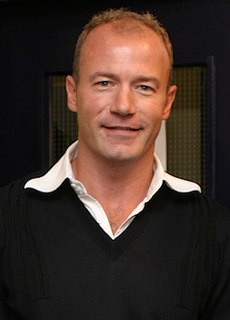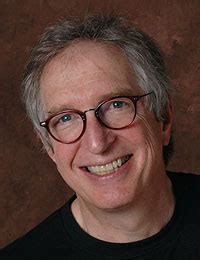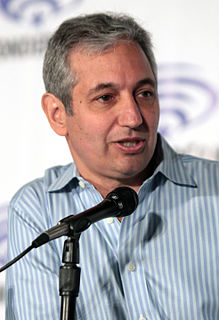A Quote by Noam Chomsky
Should we even have the classification system? Why shouldn't these things be open? There are things you want to keep secret, like the characteristics of your latest fighter plane or something like that.
Related Quotes
It's far easier to write why something is terrible than why it's good. If you're reviewing a film and you decide "This is a movie I don't like," basically you can take every element of the film and find the obvious flaw, or argue that it seems ridiculous, or like a parody of itself, or that it's not as good as something similar that was done in a previous film. What's hard to do is describe why you like something. Because ultimately, the reason things move people is very amorphous. You can be cerebral about things you hate, but most of the things you like tend to be very emotive.
What is it about possessing things? Why do we feel the need to own what we love, and why do we become jerks when we do? We've all been there- you want something, to possess it. By possessing something you lose it. You finally win the girl of your dreams, the first thing you do is change her. The little things she does with her hair, the way she wears her clothes or the way she chews her gum. Pretty soon what you like, what you changed, what you don't like, blends together like a watercolor in the rain.
People say to you, 'you've changed', or something like that, well, I hope, for the sake of God, that you have changed, because I don't want to be the same person all my life. I want to be growing, I want to be expanding. I want to be changing. Because animate things change, inanimate things don&'t change. Dead things don't change. And the heart should be alive, it should be changing, it should be moving, it should be growing, its knowledge should be expanding.
As scientists you must keep your minds open. There is no use having blind faith in Me, in Sahaja Yoga, in anything because blindness will never give you reality. But you should be open like scientists are and whatever hypothesis I am putting before you, you have to feel it on your central nervous system.
If you depend on a secret for your security, what do you do when the secret is discovered? If it is easy to change, like a cryptographic key, you do so. If it's hard to change, like a cryptographic system or an operating system, you're stuck. You will be vulnerable until you invest the time and money to design another system.
Opportunities may come along for you to convert something -something that exists into something that didn't yet. That might be the beginning of it. Sometimes you just want to do things your way, want to see for yourself what lies behind the misty curtain. It's not like you see songs approaching and invite them in. It's not that easy. You want to write songs that are bigger than life. You want to say something about strange things that have happened to you, strange things you have seen. You have to know and understand something and then go past the vernacular.
I’m curious about things that people aren’t supposed to see—so, for example, I liked going to the British Museum, but I would like it better if I could go into all the offices and storage rooms, I want to look in all the drawers and—discover stuff. And I want to know about people. I mean, I know it’s probably kind of rude but I want to know why you have all these boxes and what’s in them and why all your windows are papered over and how long it’s been that way and how do you feel when you wash things and why don’t you do something about it?
The secret of Masonry, like the secret of life, can be known only by those who seek it, serve it, live it. It cannot be uttered; it can only be felt and acted. It is, in fact, an open secret, and each man knows it according to his quest and capacity. Like all things worth knowing, no one can know it for another and no man can know it alone.
We have to be careful that we don't keep multiplying disorders and diluting them. I think there is a difference. People talk about Asperger's as high-functioning autism, which I think it is. But it does have some of its own characteristics, like the preservation of language, particularly, which may be right brain dysfunction instead of left brain dysfunction, and we lose something in that, as things lose their specificity, and we keep diluting things. I'm not sure that's helpful.






































